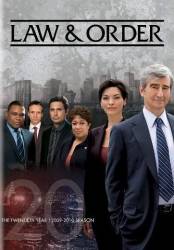Question: I don't remember if it was this show or another L&O, but there was an episode where a reporter was overseas at a military encampment, reporting on a war. While there, he explains the military's plans by drawing them in the sand. Shortly later, the encampment is attacked. How could the enemy figure out where the encampment was? The reporter never said where the location was at, only what the soldiers were planning.
Question: What is a mistrial?
Answer: I was once a juror on a trial where the defendant started crying and talking about how his son would suffer if he went to jail. The judge became furious, decided that he had prejudiced the state's case (we were now thinking of his family, rather than if he were actually guilty), and declared a mistrial.
Answer: In short, any time a trial ends and is declared void before the jury delivers a verdict or a judge issues a decision. Generally a mistrial is caused by a jury not being able to come to unanimous decision or the prosecution does something that would make the trial unfair to the defendant.
Question: Why did they keep changing female ADA's? I personally think Wolf may have been a bad boy and most of them didn't want to play his game.
Answer: It was an open secret that Jack McCoy slept with his female assistants. It's reasonable to assume that as he tired of them or they moved on in life, he found a new assistant. In the case of Serena, she became a lesbian and was eventually fired for being too emotionally involved with defendants.
Question: There were a few times during the series when the police would be looking for information from, say, a group of prostitutes on the street, or a group of men involved with buying/selling drugs in an alley, or some low level criminal they were questioning. Detective Briscoe would pull out one of his business cards, and announce something like, "this is a get out of jail free card" for the person who would come forward to tell them where to find the person they were looking for, or to identify a photo. I always wondered, would some future police officer or detective investigating some new crime really honor that? What if it was a more serious crime? Or even if it was just another simple drug or prostitution bust, and not something more serious, wouldn't that later officer lose the leverage of that arrest, and maybe the possibility of finding a "bigger fish" or whatever they were trying to do?
Chosen answer: If the prostitute with the card was arrested, she would likely ask to speak to Briscoe. Briscoe would visit, recognize her, and have her released because of it, if it was simply prostitution or a drug Possession charge. Those crimes mean nothing when looking for a murderer or rapist.
Question: Was the TV movie "Exiled" set in real time? I caught the last half hour of it on TV, and at one point, Logan makes a reference to an event from "three years ago"; the film was aired in 1998, and 1995 was Chris Noth's last season on the show.
Chosen answer: Yes, it was set roughly three years after the incident that had Logan "exiled".
Question: How come Briscoe and Greene and every other cop that works in the precinct can wear suits at the scene of a crime but when other cops from other precincts are also at the crime scene they are wearing uniforms?
Answer: An example of this might be easier to give a reason, but the most likely explanation is that those in police uniform are just regular police while Briscoe, Green are detectives. As for the precinct, the area that they work in is where other detectives work so that would be why so many are dressed in suits as well.
Question: What were the cases that the so-called "honorable" William Wright was presiding over and why did he reverse the verdicts?
Answer: William Wright has been in 4 episodes of Law & Order as an judge. They were "Damaged", "Gunshow", "Harm" and "Dissonance". I believe "Gunshow was the only episode he reversed a verdict. That was because the evidence presented did not meet the guidenlines set at the start of the trial and the evidence wasn't conclusive enough to link the gun manufacturers to the crime itself.
If I remember correctly there was also an episode where he also reversed the verdict on two teenage boys who were found guilty of raping a girl because according to Wright, "She probably enjoyed it."
Question: Who does the voice-over at the beginning of each episode?
Answer: According to the IMDB, the voiceover is provided by Steven Zirnkilton, who also provided the oppening voiceovers for the other Law & Order series, as well as for the 2003 revival of Dragnet.






Answer: A courtroom trial that has been terminated prior to its normal conclusion. A mistrial has no legal effect and is considered an invalid or nugatory trial. This often happens when there is a lack of Jurisdiction, an incorrect jury selection or, as seen in many of the episodes, a hung jury, i.e. some jury members finding the defendant guilty while the other members of the jury will find the defendant not guilty and all jury members won't change their decision.